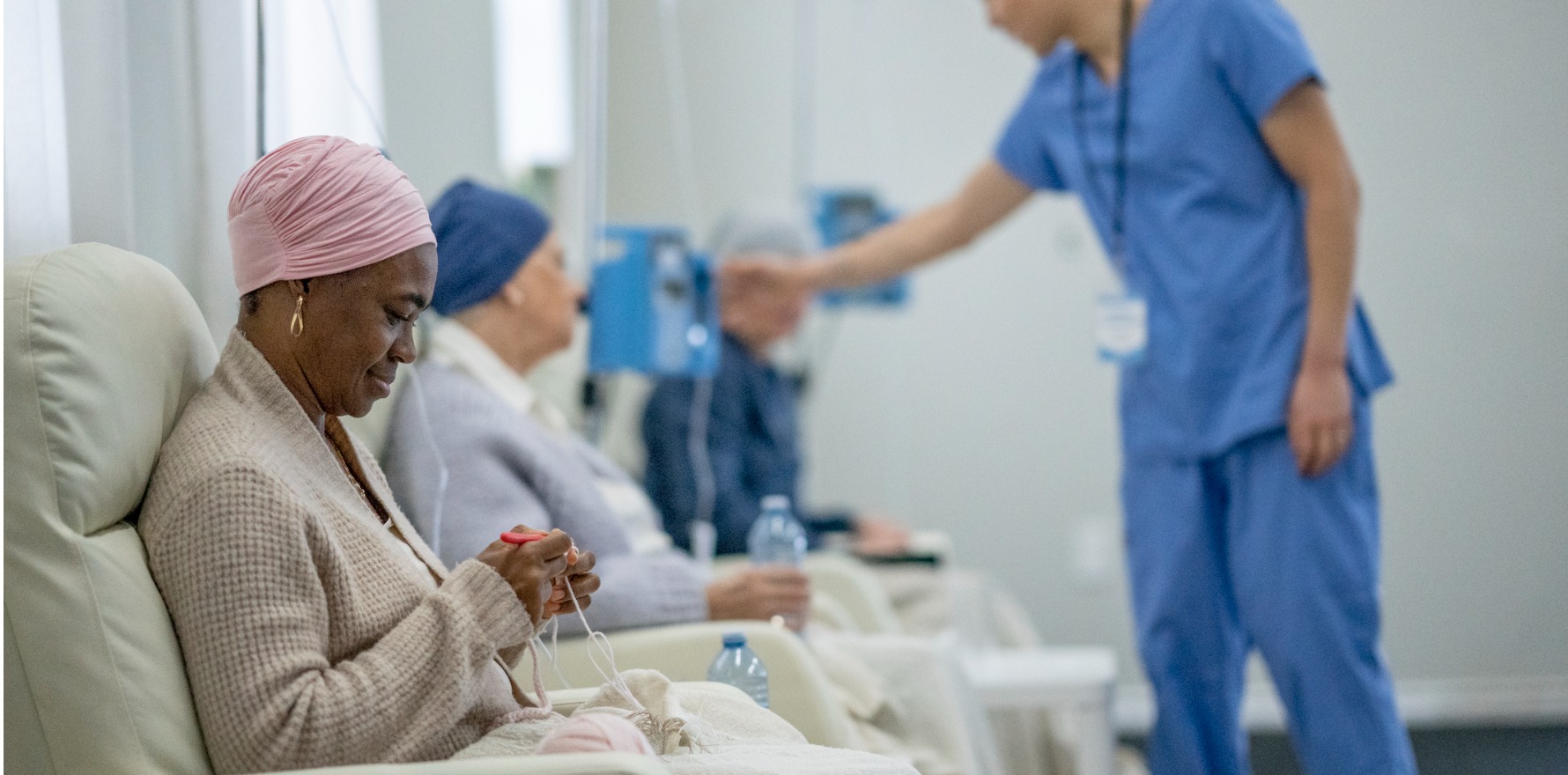Rare cancer patients are excluded from clinical support services funded for common cancers, a Senate hearing has been told.
Greater investment in genetic testing and clinical support services is vital to ensuring equitable care for rare and less common cancer patients, researchers, health professionals and patients have told a Senate hearing.
Dr Melanie Wuttke, Head of Medical Oncology at Royal Hobart Hospital, told the hearing into rare and less common cancers that these patients were overlooked in nurse clinical consultant services.
She said more funding was needed to support nurse clinical consultants with expertise in rare and less common cancers, with patients currently disadvantaged by a lack of access to nurse consultant support services.
“We have put an application in for a clinical nurse consultant for less common cancers and rare cancers, we haven’t been successful in getting that through as a business case,” said Dr Wuttke.
“Some of the ones that aren’t covered currently are brain tumours, which is our next biggest area of need, genital [and] urinary cancers other than prostate, so kidney, testicular, and sarcomas fall into that group as well as a smattering of others.
“We’re really keen to look at getting someone in that space, because we have 11 nurse consultants at the Royal that support the more common cancers, so it’d be really great to be able to give those [rare cancer] patients a better pathway through.”
According to Dr Thomas Walwyn, Staff Specialist Paediatric, Adolescent and Young Adult Oncology at Royal Hobart Hospital, state and federal governments needed to consider more flexible funding arrangements to improve access for regional and rural patients to clinical trials investigating therapies for rare and less common cancers.
“There are some aspects of [rare cancers] I’ll come to in a minute that demand a more flexible approach to how therapy is managed between jurisdictions, both between states but also between state -based funding and federal-based funding for things around drugs but also around hospital therapy,” Dr Walwyn said.
“There are mechanisms with the Medical Treatment Overseas Program to have recognised therapy done beyond your jurisdiction.
“I personally think that recognised support for travel for clinical trials via interstate or international [organisations], with a pragmatic process for ensuring that it’s not one clinician saying a particular thing and that is recognised and justified, would be the useful thing.”
Dr Anna Johnston, Director of Clinical Haematology at Royal Hobart Hospital, agreed, saying regional and rural patients with rare and less common cancers faced significant travel expenses accessing clinical trials
“Patients in smaller places with rare cancers may be unable to access clinical trials because they may be unable to travel to a larger centre where there’s a specific clinical trial, and obviously that travel, whether it be for a standard treatment or for an [experimental] trial is very expensive,” she said.
“And the costs of that are only partially met by the state hospital travel scheme, which by the way, will not fund travel for somebody to go on a clinical trial, so that’s another additional burden.
“I have some insight from a colleague of mine who has been unwell with a rare cancer, and my understanding is that there is quite a significant shortfall, which to some extent is taken up by, like the sort of, you know, charitable sector and so forth.”
Professor Jo Dickinson, Cancer Genetics Lead at the Menzies Institute for Medical Research, said greater investment in regional and national biobanks for cancer data was also crucial to improving diagnostic capabilities and genetic data collection for rare and less common cancers, particularly for regional and rural patients.
“Performing biobanking and associated data collection and data sharing capability is key to competing regional areas to participate in national biobanking strategies, but also in clinical trials,” said Professor Dickinson.
“It’s important to note that in a lot of cases, it’s left to local researchers and clinicians to find the money to support those biobanking initiatives, which, of course, is difficult and challenging.
“I think priorities need to change with regard to enabling by banking and certainly genetic testing.”
Patients appearing before the hearing described experiencing repeated obstacles accessing diagnostic and treatment services for rare and common cancers, with many turned away or ignored by hospital staff and clinicians as well as waiting weeks or months and spending hundreds of thousands of dollars to access experimental clinical trials.
One patient, a First Nations woman with a two-year-old son born with infantile fibrosarcoma, said her concerns regarding her son’s condition were repeatedly “dismissed” by staff at the Royal Hobart Hospital, who insisted she wait to speak to a doctor at an outpatient telehealth appointment booked for two months in advance.
“Despite the fact that there was obvious physical malformations, and that a sarcoma had been identified as a differential diagnosis prior to birth, when the true extent of the congenital abnormalities were realised, we were not offered a biopsy, we were not transferred to the Children’s Hospital, and in fact, we were discharged from all services with only the anticipation of an outpatient clinic appointment,” she said.
“We were assured the masses were vascular birthmark, benign and not sinister, despite what we later found out, [that] the assessment hadn’t been made based on inconclusive scan report.
“I tried to get assistance from a GP but was ultimately told to trust the experts at the hospital. I then went to the emergency department, but even then, we were still dismissed, being told that we had received our diagnosis and we simply needed to wait for the outpatient appointment, which by then had been booked at the telehealth in two months’ time.
“Ultimately, the severity of his condition was not recognised until weeks after birth, [and] our only options were to personally seek help overseas and eventually interstate to get a diagnosis.
“The barriers we face to diagnosis were committed by systemic failings and procedural gaps that must be rectified. This cannot happen to another family.”


